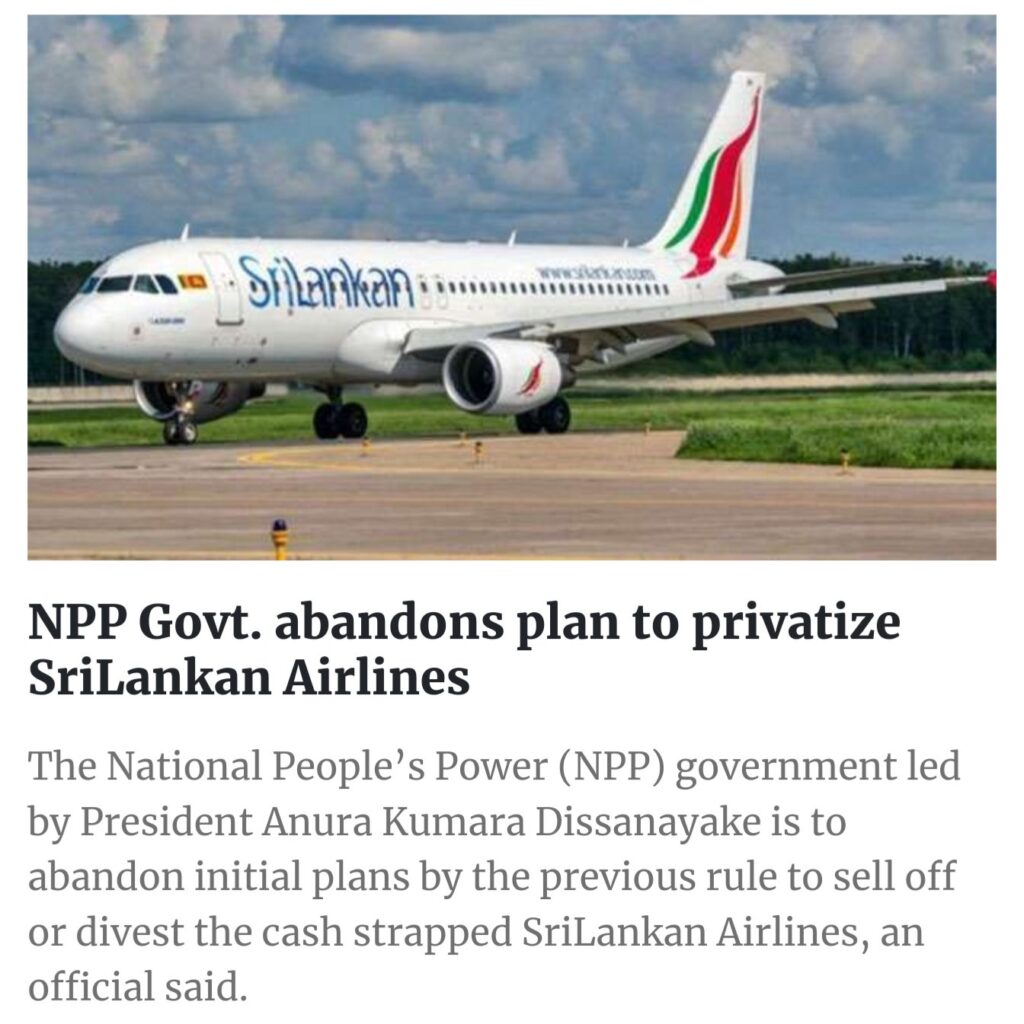1. National Security and Connectivity
- Strategic Importance: SriLankan Airlines plays a vital role in the country’s national security and emergency response. In times of crisis, natural disasters, or emergencies, the airline can be mobilized to evacuate citizens or deliver essential supplies.
- Geopolitical Importance: Sri Lanka’s location in the Indian Ocean makes it a strategic hub for global air routes. A national airline allows the government to exert influence in this region, maintain connections with strategic partners, and support foreign policy goals.
2. Economic Stability and Tourism Development
- Tourism Dependency: As an island nation, Sri Lanka is heavily dependent on tourism, which is a major economic driver. A national airline helps maintain direct routes to key tourism markets, supporting the broader economy. If privatized, new owners may cut unprofitable but strategically important routes, affecting tourism.
- Regional Connectivity: SriLankan Airlines plays a key role in connecting regional hubs and rural areas. A private owner might prioritize only profitable routes, reducing connectivity to less lucrative or remote destinations, negatively impacting local economies.
3. Control Over Pricing and Service Quality
- Affordability for Citizens: Government control allows for policies that ensure affordable airfare for Sri Lankan citizens, especially for lower-income travelers. Privatization could lead to higher ticket prices, as private entities would focus on maximizing profits.
- Service Reliability: A state-owned airline can be mandated to maintain certain service standards, which may decline if the airline is privatized and cost-cutting becomes a primary focus.
4. Preservation of National Identity and Branding
- Cultural and National Symbolism: SriLankan Airlines is not just a company; it represents the country’s brand on the global stage. Privatization could lead to a loss of national pride and identity associated with the airline.
- Soft Power: The airline is an ambassador for Sri Lanka, promoting the country’s image worldwide. Losing control could impact how Sri Lanka is represented internationally.
5. Long-term Strategic Investments and Market Cycles
- Short-Term vs. Long-Term Outlook: Private companies often focus on short-term profitability, whereas a state-owned enterprise can take a long-term view and invest in future growth. For example, the airline could strategically develop routes that may not be immediately profitable but are essential for long-term economic interests.
- Market Recovery Cycles: The airline industry is cyclical, often facing periods of downturn (due to factors like fuel costs, global crises, etc.). The current losses may be temporary, and retaining state control ensures the country benefits when the airline returns to profitability as markets recover.

6. Job Security and Labor Relations
- Protection of Jobs: Privatization could result in job cuts or worse labor conditions, especially in a cost-cutting environment. SriLankan Airlines provides direct and indirect employment to thousands of Sri Lankans. Government control ensures job security and more favorable labor relations.
- Impact on Associated Sectors: SriLankan Airlines supports multiple other sectors, such as hospitality, tourism, and airport services. Privatization may disrupt this ecosystem, leading to broader economic impacts.
7. Economic Nationalism and Political Resistance
- Public Sentiment and National Interest: Sri Lankans may view the airline as a national asset that should remain in government hands. Privatization could be politically unpopular and spark backlash, with the public perceiving it as a loss of national sovereignty.
- Strategic Asset Protection: Keeping the airline state-owned can prevent foreign entities or multinational corporations from controlling a crucial piece of infrastructure, ensuring the country retains leverage over its air transport sector.
8. Potential for Strategic Partnerships without Full Privatization
- Government-Led Reforms: The government could pursue a strategic restructuring of the airline, including partnerships or partial privatization (e.g., retaining majority ownership), rather than a full sale. This allows the country to benefit from private sector expertise while maintaining control over national interests.
- Alliances and Collaborations: Instead of privatization, SriLankan Airlines could enhance its participation in global alliances (e.g., OneWorld) to improve profitability and efficiency without losing state ownership.
9. Access to Capital and Subsidization
- Government Support: As a state-owned entity, SriLankan Airlines can continue to access government support or low-interest loans to help it navigate through financial challenges. Privatized entities may not receive the same level of financial backing during crises, potentially leading to operational downsizing.
10. National Development Goals
- Economic Diversification: The airline supports sectors beyond tourism, such as business travel and cargo, which are essential for national economic diversification. A profit-driven private entity may not prioritize routes or services that support broader economic development goals.
- Infrastructure Development: The national airline can play a role in supporting the development of airports and regional hubs, which may not be a priority for a private operator looking to cut costs.
While SriLankan Airlines faces financial challenges, privatization is not the only or necessarily the best solution. Retaining government control allows the country to ensure strategic connectivity, safeguard national interests, and support the broader economy. Through restructuring, partnerships, and better management, the airline can potentially turn around without sacrificing public ownership.


















